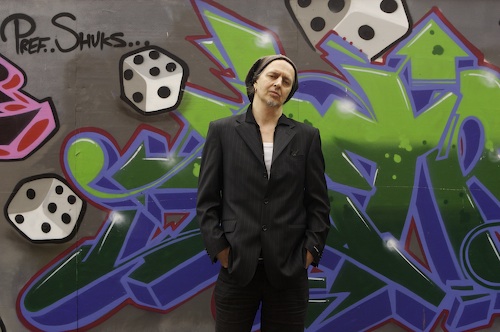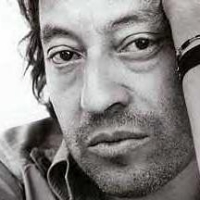Aidan Curran posted on October 30, 2007 09:14
Fans of good music and great music writing will have spotted this year's new and expanded edition of 'The Dark Stuff', Nick Kent's collection of his more memorable articles.
 The legendary music writer has been living in Paris since the early '90s, and these days he contributes occasional articles to The Guardian and its French counterpart, Libération. He also works on scripts for TV music shows - most notably 'Rapido', the innovative Anglo-French music show from the late '80s.
The legendary music writer has been living in Paris since the early '90s, and these days he contributes occasional articles to The Guardian and its French counterpart, Libération. He also works on scripts for TV music shows - most notably 'Rapido', the innovative Anglo-French music show from the late '80s.
As a result, Kent is in a good position to offer his insight into French music - so it's interesting to see that the 2007 edition of 'The Dark Stuff' includes among its new articles a piece on France's greatest pop icon, Serge Gainsbourg.
The essay, originally published in The Guardian in April 2006, tells the story of Kent's only encounter with Gainsbourg, in the winter of 1988 when Serge was suffering the decline of both his talent and health. The two men crossed paths in fairly improbable circumstances; both were judges at a film festival in the Alpine ski resort of Val d'Isère (Sex Pistols documentarist Julien Temple was another judge).
The English writer admits that, at the time, his knowledge of the French singer was limited to (strangely enough) Gainsbourg's film appearances and (more obviously) 'Je T'Aime (Moi Non Plus)', pop's most notorious Number One.
Kent paints an unflattering picture of Gainsbourg. Apparently aware of his irreversible slide into decrepitude, the ageing Gallic icon spends the week-long festival making an absolute show of himself and pushing his hosts' adoration to its limits. He throws screaming fits when told to stop smoking in no-smoking areas, stumbles drunkenly from one engagement to the next, and holds court at the bar nightly with yes-men and flunkies.
 Anyone looking for some words of insight from the doomed Frenchman will, like Kent, be disappointed - the writer couldn't understand any of Gainsbourg's slurred and drunken attempts at speech. "He looked (Kent writes) absolutely terrible - his face and body utterly polluted from alcohol abuse, his eyes ugly unfocussed slits, his voice a sneerful rasping whisper." As an encounter between France's greatest pop songwriter and England's greatest music journalist, it was a crushing anti-climax.
Anyone looking for some words of insight from the doomed Frenchman will, like Kent, be disappointed - the writer couldn't understand any of Gainsbourg's slurred and drunken attempts at speech. "He looked (Kent writes) absolutely terrible - his face and body utterly polluted from alcohol abuse, his eyes ugly unfocussed slits, his voice a sneerful rasping whisper." As an encounter between France's greatest pop songwriter and England's greatest music journalist, it was a crushing anti-climax.
But Kent, always with a sharp eye out for a peek into the dark heart of his rock stars, still crafts an intimate view of Gainsbourg. At the screening of music documentary 'Imagine' Gainsbourg bawls self-indulgently at the image of John Lennon's murder; Serge "knew he was going to die soon", says Kent rather fancifully; "there was absolutely no doubt about this."
Gainsbourg lived on for just over two years more, eventually passing away on 2 March 1991 after a heart attack. As for Kent, he met his future wife at the Val d'Isere festival and moved to Paris soon after. He ends his article by graciously praising the quality of Gainsbourg's musical legacy, but expresses his fears that the worst aspects of the alcoholic Frenchman's boorish behaviour (exemplified by his TV chat-show encounters with Whitney Houston and Catherine Ringer, singer with Les Rita Mitsouko) were being glossed over by his devotees.
From a writer whose stock in trade is to lay bare just that sort of tragic and sordid detail, this is hardly surprising on Kent's part. However, in France those notorious '80s chatshow clips of Gainsbourg have reached the infamy of, say, George Best's drunken appearance on 'Wogan', and it would be hard for anyone to not be aware of both Gainsbourg's peerless music and Gainsbourg repeatedly calling Ringer a 'whore'. Outside France, where these clips are never seen, that's a different matter. That said, it's simply a fact that our society mythologises dissolute and tragic artists, often at the expense of paying due critical attention to their work. And some would argue (perhaps unfairly) that Kent himself has contributed to this.
Nonetheless, however obnoxious Gainsbourg may have been as a person in his later years, the music of his mid '60s to late '70s heyday has kept a Dorian Gray-like freshness and beauty.
If you already have the original edition of 'The Dark Stuff' you can check out the online Guardian version of Kent's article on Gainsbourg. The most appropriate Serge song right now is probably 'Requiem Pour Un Con'; 'con' is the French equivalent of calling someone a c*nt. Who says this blog isn't educational?
More ...
[Read More...]